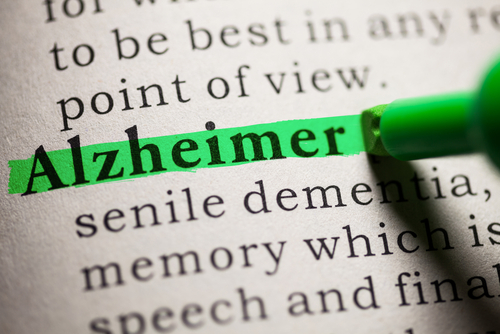Study Examines A Quick And Simple ‘Dementia Test’ For Alzheimer’s Disease

 A new study established a Self-Administered Gerocognitive Examination (SAGE) as a screening tool for mental decline, as observed in neurological conditions such as Alzheimer’s disease. This study entitled “Community Cognitive Screening Using the Self-Administered Gerocognitive Examination (SAGE)” was published in The Journal of Neuropsychiatry & Clinical Neurosciences by Douglas W. Scharre, M.D, from the Division of Cognitive Neurology, Department of Neurology, The Ohio State University Wexner Medical Center, and colleagues.
A new study established a Self-Administered Gerocognitive Examination (SAGE) as a screening tool for mental decline, as observed in neurological conditions such as Alzheimer’s disease. This study entitled “Community Cognitive Screening Using the Self-Administered Gerocognitive Examination (SAGE)” was published in The Journal of Neuropsychiatry & Clinical Neurosciences by Douglas W. Scharre, M.D, from the Division of Cognitive Neurology, Department of Neurology, The Ohio State University Wexner Medical Center, and colleagues.
In United States, approximately 4.7 million individuals have Alzheimer’s disease (AD); by 2050 that number is to expected increase to 13.8 million. Moreover, 3%−22% of individuals over 60 years of age currently meets criteria for Mild Cognitive Impairment (MCI). Thus, the precocious detection of MCI and dementia is essential, since several studies have shown that early pharmacological intervention seems to retard the progression of AD. More than 40% of patients with mild dementia are not detected and diagnosed by their primary care physician.
In this study the research team evaluated the features and utility of the Self-Administered Gerocognitive Examination (SAGE) as a screening test in 1,047 subjects older than 50 years old, recruited from several locations. The SAGE is used to identify people with mild cognitive impairment and dementia. The scores of the test range from 22 (maximum score) and 17, which means one has normal cognition, between 16 and 15, which corresponds to mild cognitive impairment, and scores of 14 or lower may indicate dementia. The SAGE baseline score is the first chance for an individual to perform a test against which alterations in score value can be compared. For each individual tested, a SAGE score was given along with advice to show the test to their primary care clinician.
The researchers found that the average score for SAGE was 17.8. Among which 71.6% of individuals had normal cognition, 10.4% had mild cognitive impairment (mild mental decline), and 18% had dementia. Moreover, older individuals with lower education level had lower total SAGE scores. According to published standard scores for the SAGE test, 28.4% of individuals evaluated had mental decline. Importantly, it was not established if the Self-Administered Gerocognitive Examination (SAGE) is precise and reliable as an indicator of mild cognitive decline (mental decline) or dementia since these results were not compared with other available cognitive tests or with clinical examination.






